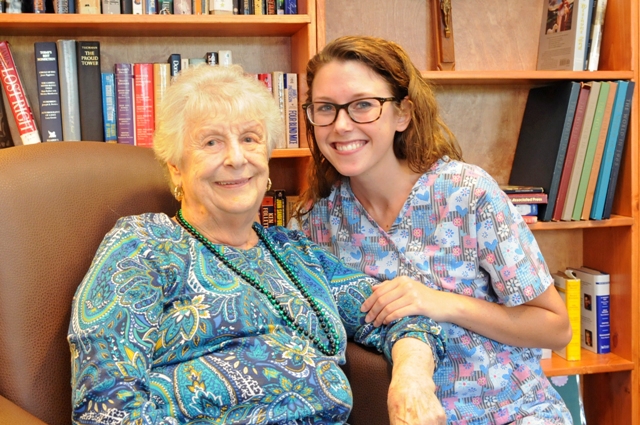Senior Care Lingo: Defining the Terms (Jan. 2017)

In October 2016, we had a great response to an article we published about defining some of the senior care terms that people don’t always understand – so we decided to make it a series! Here are some commonly asked questions we get at Concordia from families and individuals just starting their search for senior care services or a retirement community.
What is the difference between skilled nursing and personal care/assisted living?
In short, skilled nursing provides a higher level of health care services. In personal care or assisted living (click here to learn about the difference between those two terms), residents receive professional assistance with activities of daily living, such as bathing and personal hygiene, mobility assistance, wound care, preparation of special nutritional meals or diets, housekeeping, activities, laundry, spiritual care and more. Skilled nursing residents receive assistance with these activities of daily living as well, but they also receive a higher level of around-the-clock health care from various health professionals – including a medical director, nurses, therapists, social workers, dietitians and many more. It’s important to remember, though, that Concordia personal care facilities are still staffed by nursing professionals; however, there is a much higher nurse-to-patient ratio in skilled nursing. Additionally, skilled nursing is often covered, in part, by Medicare and private insurance. Personal care is primarily private pay.
Are all senior care options classified as “nursing home” care?
Contrary to popular belief, NO! By the letter of the law, the only “nursing home” product in the senior care industry is skilled nursing. Like we said earlier, skilled nursing includes a higher level of health care services – hence the term “nursing” home. We encourage everyone to visit one of our retirement living communities in western PA or eastern OH – you would definitely never confuse one of those with a nursing home.
What is the difference between hospice care and palliative care?
These are two terms that tend to confuse people quite often. First, the similarities: Hospice and palliative care both provide symptom management; both are in place to relieve pain and discomfort; both are for individuals with advanced serious illnesses. The two key differences are that 1) palliative care patients do not always have a terminal diagnosis [less than six months to live]; and 2) palliative care patients can still be receiving “curative” treatments, whereas hospice patients are strictly receiving comfort measures.
What is “Level of Care,” as it relates to my loved one living in a Concordia Personal Care Community?
Level of care (LOC) relates to how much care and assistance a personal care or assisted living resident needs. It is broken down into a point system with sections to decide how the nursing and support staff will assist your loved one. The sections include an assessment of each resident’s toileting status, how much help is needed to transfer from one position to another, how well he/she can carry out the Activities of Daily Living, bathing, nutritional status, mental status, medication management, special medical assistance devices needed and if they’re a fall risk. A LOC assessment is typically completed when a resident is first admitted, six weeks after admission, semi-annually and if there is a significant change in the resident’s health. Depending on how much assistance is needed, the resident is charged an additional fee that is above and beyond the cost of room and board.
Whatever senior care services you are looking for in western PA or eastern OH, whether for yourself or your loved ones, check out what all of the Concordia locations and home care services can provide for you. With a wealth of care levels and services, finding the right fit for your senior or health care needs is easier than ever. Call our administrative headquarters at 724-352-1571 or message us through our online contact form to ask about what Concordia can do for you.
Get Updates From Concordia
There is always a LOT happening at Concordia! Would you like to stay up-to-date with our news and events? Sign up for our monthly e-newsletter here.